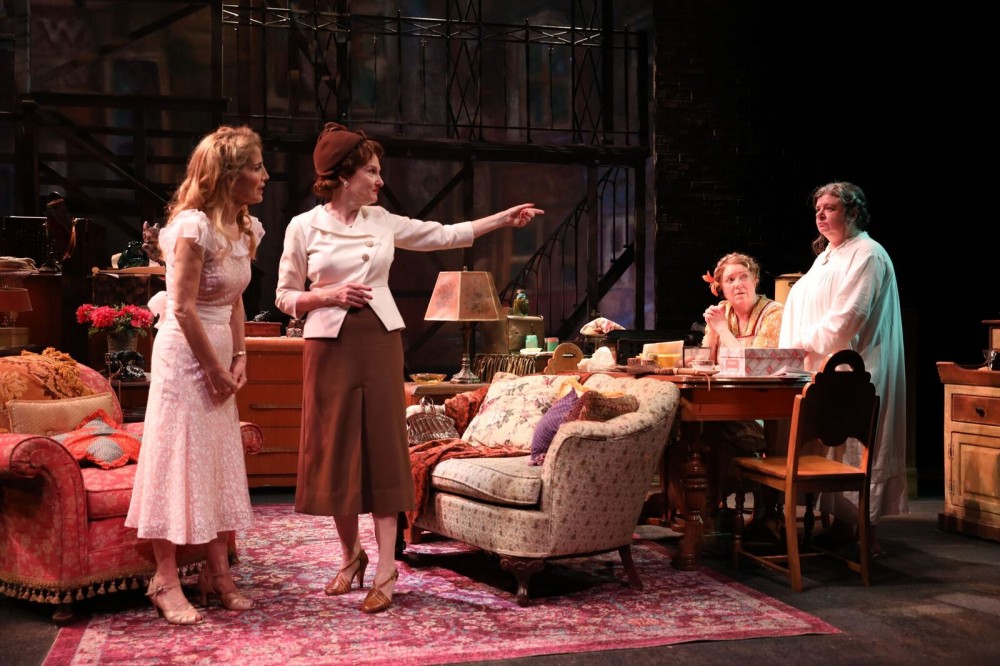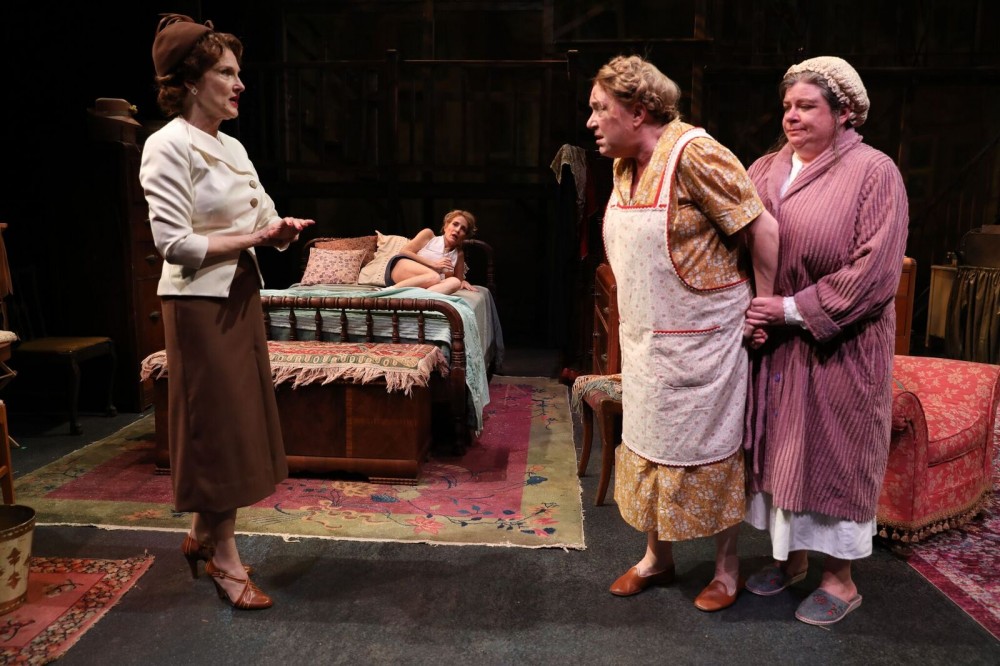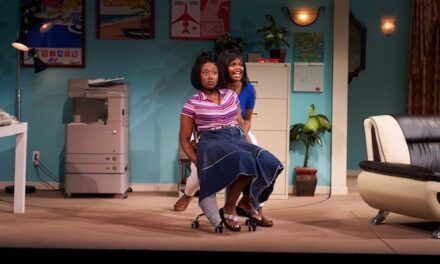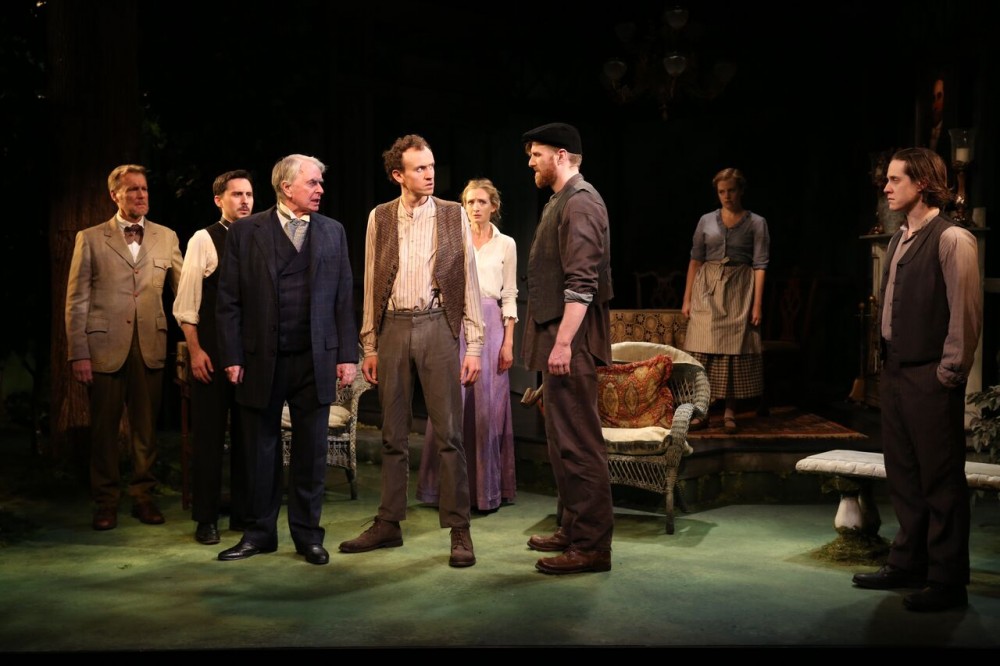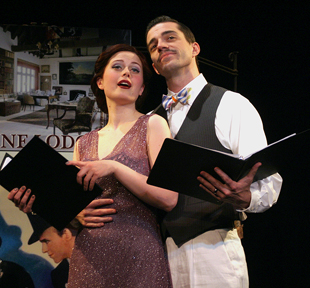By Samuel L. Leiter
Revivals of anything by Tennessee Williams from the generally undistinguished days that followed Eccentricities of a Nightingale (1962’s rewritten version of 1948’s Summer and Smoke), are always of deep interest. That’s especially so for fans who believe some of the later plays to be underrated, needing only the right combination of actors and director to prove them neglected masterpieces.
Unfortunately, such high expectations weren’t fully met with recent New York revivals of In the Bar of a Tokyo Hotel, The Two-Character Play (a.k.a. Outcast), and The Mutilated, nor are they with director Austin Pendleton’s current Off-Broadway resurrection of Williams’s A Lovely Sunday at Creve Coeur. Even a cast led by such New York stage stalwarts as Annette O’Toole (Southern Comfort), Kristine Nielsen (Vanya and Sonya and Masha and Spike), and Jean Lichty (The Traveling Lady) can do little to make this comedy splashed with pathos bring mild laughter to your lips or moisture to your eyes at Theatre at St. Clement’s.
A Lovely Sunday at Creve Coeur is familiar Williams territory; blindfolded visitors would sense the writer’s presence within minutes in this otherwise unexceptional tale of four, early middle-aged, single women trying to mend or fend off broken hearts in 1937 St. Louis. Echoes of Williams belles like Blanche and Amanda bounce off the (invisible) walls of a low-rent efficiency apartment, shared by the pretty Dorothea (Lichty), a high school civics teacher, and Bodey (Nielsen), a dumpy, hard-of-hearing, German-American, shoe factory worker.
It’s Sunday morning. Dorothea, a romantically deluded Williams female—whose previous beau dropped out of the picture because of his “premature ejaculation” problems—is convinced that her school’s socially prominent principal, Ralph Ellis, plans to marry her. Her total focus is on the phone, which she keeps expecting to ring with his call.
The cynical Bodey realizes the impossibility of Dorothea’s fantasy, especially after she comes across a piece of news in the newspaper’s society section. Keeping it secret, Bodey seeks instead to arrange a picnic at a park called Creve [pronounced “creeve”] Coeur (meaning broken heart), reached by the local streetcar. There, she hopes to light a match between Dorothea and her overweight, cigar-smoking brother Buddy, whom Dorothea considers way beneath her.
Thinking, despite her limited resources, that she needs a fancier apartment in a more upscale neighborhood in which to entertain Ralph, Dorothea plans to move in with Helena (O’Toole), an art history teacher at Dorothea’s school. After Helena, well-dressed, snootily class-conscious, and pretentiously articulate, shows up to get Dorothea’s half of the first month’s rent, a series of confrontations follows between the predatory Helena and the defensive Bodey. Much of what happens borders on farce (although very little of it is funny), all of it concluding with a big reveal anyone familiar with Williams will anticipate well in advance. Much of the intended humor is introduced via Bodey’s malfunctioning hearing aid and the visitation of an upstairs neighbor, Miss Gluck (Polly McKie), a slovenly, German-speaking neighbor, incessantly grieving over her mother’s death. She also suffers from a case of loose bowels, adding an unfortunate dose of scatological humor to the proceedings. Bring on the mop.
Too little of the acting reveals the hearts, broken or otherwise, of these potentially interesting characters. Lichty plays too much of Dorothea with a whiny, plaintive tone that sounds more theatrical than real, and fails to convey the woman’s vulnerability. Nielsen, usually a delight, enjoys some quality moments but depends too heavily on her amusing array of fluttery movements and oddball reactions. O’Toole, offers another example of her impressive versatility, effectively simulating Helena’s condescending airs, while McKie is satisfactorily caricaturish as the mournful neighbor with an upset stomach.
Absent the benefit of a uniformly sincere ensemble, A Lovely Sunday for Creve Coeur’s repetitive emphasis on the same basic conflicts comes to seem, over the course of an intermissionless hour and 45 minutes, increasingly artificial. This is especially so when viewed against the background of Williams’s masterworks about similar people and environments.
Beth Goldenberg’s Depression-era costumes are on the mark, but Harry Feiner’s cluttered set, which he also lit, doesn’t help much with its decision to show the bedroom and living room/kitchen as a single space lacking the room-separating walls and doors suggested by the script. In Pendleton’s staging, the presence or absence of the walls often seems arbitrary and confusing, with behavior that sometimes acknowledges the spatial distinctions and sometimes ignores them.
A Lovely Sunday for Creve Coeur is the best of the recent revivals of neglected Tennessee Williams plays. Productions of it elsewhere have reportedly served it well. Nevertheless, the present version fails to convince that, other than because of its author’s name, it’s a lost treasure waiting to be found.
A Lovely Sunday for Creve Coeur. Through October 21 at Theatre at St. Clements (423 West 46th Street, between Ninth and Tenth Avenues). www.stclementsnyc.org
Photos: Joan Marcus


